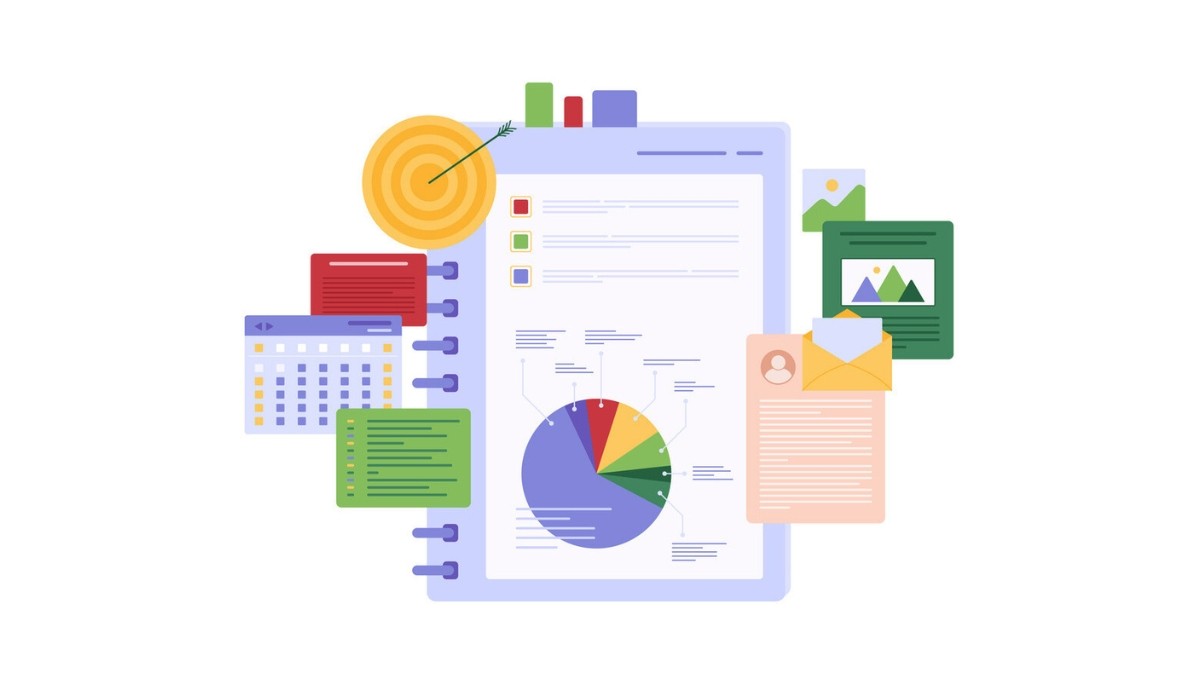Most In-Demand AIML Tools
By
Samantha Cox
•
May 27, 2025

AIML, or Artificial Intelligence and Machine Learning, is transforming the way businesses operate by automating tasks and improving decision-making. In this article, we’ll cover the top AIML tools that companies are using to gain a competitive edge.
Key Takeaways
AIML tools enhance organizational decision-making by facilitating data analysis, automating processes, and improving productivity.
Fonzi is an innovative AIML tool that revolutionizes hiring practices through structured evaluations and unbiased candidate assessments.
TensorFlow and PyTorch are leading deep learning frameworks, each offering unique advantages that cater to different project requirements.
What is AIML?

Artificial intelligence (AI) refers to systems that mimic human intelligence, including cognitive functions such as learning and problem-solving. Machine learning artificial intelligence (AIML) is a term used to describe the combined field, which is considered an applied science due to its focus on real-world problem solving within engineering and technical domains. Machine learning (ML), on the other hand, serves as a practical application of AI and machine learning, using data-driven algorithms to enhance performance autonomously. Unlike traditional software, machine learning does not rely on explicit programming, but instead enables computer programs to learn from data. While AI is broader in scope, ML focuses specifically on how computers learn from data, including reinforcement learning.
Together, AI and ML enable companies to:
Make more informed decisions by improving data integrity and analysis
Automate manual processes
Drive productivity
Enhance customer and employee experiences
For instance, AI technologies facilitate the analysis of both structured and unstructured data, uncovering insights that drive business innovation. Machine learning algorithms allow computer programs to recognize patterns in data and improve their performance over time.
Incorporating AI and machine learning isn’t just about staying current; it’s about reimagining how organizations use data to make smarter, faster decisions. These technologies minimize human error, streamline complex processes, and unlock real-time insights that were once out of reach. Together, AI and ML are reshaping industries, from healthcare to finance and beyond. The question isn’t if they’ll impact your field, but how quickly you’ll adapt to their growing influence.
Fonzi: Revolutionizing Hiring with AIML
Meet Fonzi, the cutting-edge AIML tool designed for HR professionals, recruiters, startup founders, and tech leaders. Unlike black-box AI systems or glorified spreadsheets, Fonzi delivers structured, bias-audited evaluations, ensuring fair and transparent hiring practices. This innovative tool connects teams to a live, growing talent network, making the hiring process scalable, consistent, and data-informed.
Fonzi is redefining the hiring experience by putting people first while making the process smarter. Powered by advanced AI and machine learning, it uses natural language processing, computer vision, and predictive analytics to streamline recruitment from start to finish. The result? A faster, fairer, and more insightful hiring journey that helps companies find and onboard the right talent with confidence.
AI integration in hiring enables organizations to access a broader talent pool and make informed decisions. Fonzi’s machine learning models and algorithms analyze data to identify patterns and trends, enhancing the hiring process. This level of automation and data-driven decision-making is revolutionizing how companies approach talent acquisition.
TensorFlow vs. PyTorch: Which Should You Choose?

When it comes to deep learning, two frameworks dominate the field: TensorFlow and PyTorch. TensorFlow, in particular, has become a go-to choice across industries like automotive and finance. It’s an open-source powerhouse built for both research and large-scale production, offering an extensive library of tools for deep learning and machine learning. Thanks to its scalability and efficient resource management, TensorFlow is ideal for building production-ready AI systems that can grow with your organization.
PyTorch is celebrated for:
It's a dynamic computation graph, allowing users to modify models during execution.
It is ideal for rapid prototyping.
Being particularly favored by researchers for its intuitive design and user-friendly nature, it makes it easy to learn and use, even for those new to machine learning.
Having a rapidly growing community.
Usage by organizations like OpenAI and Tesla.
Both frameworks support advanced techniques such as dimensionality reduction for handling complex data sets.
Choosing between TensorFlow and PyTorch often depends on project-specific needs, such as deployment requirements and model complexity. TensorFlow’s static computation graph requires the full model architecture to be defined before execution, while PyTorch’s dynamic graph offers more flexibility.
Both frameworks support GPU acceleration, but TensorFlow may demonstrate better resource optimization in large-scale models. Both TensorFlow and PyTorch offer built-in visualization tools to help users analyze and interpret model performance. Ultimately, the decision depends on your project’s specific requirements and personal or organizational preferences.
Beginner-Friendly AIML Tools
Getting started with AI and machine learning doesn’t have to be intimidating. Today, a variety of beginner-friendly tools make it easier than ever to experiment and build. No-code machine learning platforms, for example, let users create AI-powered chatbots without writing a single line of code. These accessible tools are breaking down barriers, opening the door for people without advanced technical backgrounds to explore AI through open-source platforms and cloud-based services. One standout example is Google ML Kit, which helps mobile app developers seamlessly integrate pre-trained models and add intelligent features with ease.
Pandas is another excellent tool for beginners, offering a user-friendly interface for data manipulation and analysis. Keras offers an intuitive API and modular design, simplifying the process of building neural networks for new users. Additionally, Scikit-learn is favored for its simplicity and efficiency in performing various machine learning tasks, supporting both supervised and unsupervised learning algorithms, which makes it versatile for a wide range of data analysis and mining tasks.
FastAI takes the complexity out of deep learning by focusing on making advanced techniques accessible to more developers. Google Cloud AutoML also simplifies the process of model training, allowing developers with minimal ML expertise to create customized deep learning models.
These tools collectively lower the barrier to entry, making it easier for beginners to delve into the world of AIML.
No-Code AIML Tools: Are They Worth It?

No-code AIML tools have revolutionized the development process by enabling rapid prototyping and iterations. These tools significantly speed up the development process compared to traditional methods, allowing for quicker deployment and testing of machine learning models.
The user-friendly interfaces of no-code tools enhance collaboration between technical and non-technical team members. This fosters a more inclusive development environment where ideas can be shared and implemented more efficiently. As the demand for professionals skilled in no-code ML continues to rise, learning these tools can open up new career opportunities.
Are no-code AIML tools worth learning for developers? Absolutely. They offer:
A cost-effective alternative to traditional machine learning approaches
Reduction in both development time and costs
Democratization of AIML, making the technology accessible to a broader audience.
Top AIML Tools Used by Leading Tech Companies

Leading tech companies rely on robust AIML tools to maintain their competitive edge. TensorFlow, for instance, is utilized by companies such as:
Airbnb
Airbus
ARM
Intel for its flexibility and robust platform engineering for ML models. Its extensive resources and community support, backed by Google, make it a popular choice for both research and production.
PyTorch, used by innovators like OpenAI, Meta, and Tesla, stands out for its flexibility and strong community support. Its dynamic computation graphs make it a favorite for rapid experimentation and research, a major reason it continues to dominate the deep learning space.
Meanwhile, Google Cloud’s Vertex AI offers an all-in-one platform for developing, training, and deploying machine learning models at scale, making it a go-to for companies ready to move from concept to production.
Other heavy hitters include XGBoost and LightGBM, both prized for their efficiency and scalability. XGBoost is known for its lightning-fast performance, while LightGBM excels at handling massive datasets and fine-tuning models. Together, these tools power decision-making and innovation at some of the world’s most advanced tech companies.
Advanced AIML Tools for Professionals
For experienced professionals, advanced AIML tools offer sophisticated technologies that enhance productivity. LightGBM, for example, is particularly effective in scenarios involving large datasets, enhancing model training speed and utilizing training data effectively. Its efficiency and scalability make it a preferred choice for complex tasks, especially when applying machine learning algorithms, and it is highly effective in training
AIML in Healthcare and Life Sciences

Artificial intelligence (AI) and machine learning (ML) are changing healthcare and life sciences in big ways. They help doctors make more accurate diagnoses, create personalized treatment plans, and speed up research. By utilizing advanced algorithms to analyze vast amounts of data, such as medical records, genetic information, and images, AI can identify patterns that people might overlook. This makes it possible to predict patient outcomes, adjust medications, and catch potential health issues before they become serious.
Natural language processing (NLP)and computer vision are also playing a pivotal role in healthcare. NLP enables the analysis of unstructured medical texts, such as physician notes and research articles, supporting natural language understanding and accelerating medical research.
AIML in E-commerce and Retail
AI and machine learning are revolutionizing retail by creating smarter, more personalized shopping experiences. Retailers use these technologies to predict customer preferences, offer tailored product recommendations, and optimize inventory management. From AI-powered chatbots that enhance customer service to intelligent forecasting that reduces waste, AIML helps businesses operate more efficiently while deepening customer engagement across both online and in-store channels.
AIML in Telecommunications and Financial Services
In telecom and finance, AI and machine learning are transforming how companies operate and serve customers. They enable predictive network maintenance, real-time fraud detection, and personalized customer support. By automating complex processes and analyzing data at scale, AIML helps organizations improve security, speed up service delivery, and maintain efficiency while staying compliant with regulations.
AIML in Manufacturing and Education
Manufacturers are increasingly turning to AI and machine learning to transform their operations from the ground up. Predictive maintenance powered by AI helps detect potential equipment failures before they occur, reducing downtime and saving costs. Machine learning algorithms also optimize supply chains by forecasting demand, improving logistics, and ensuring that materials and products move efficiently through every stage of production. Quality control has also seen major advancements, with computer vision systems identifying defects and inconsistencies faster and more accurately than ever before.
In the education sector, AI and ML are making learning more dynamic, inclusive, and personalized. Educators use intelligent systems to tailor learning paths based on individual student performance, helping learners progress at their own pace. Automated grading tools reduce administrative workload, giving teachers more time to focus on teaching and mentorship. From language translation to accessibility tools, AI is also breaking barriers, making education more adaptive and available to students of all backgrounds and learning styles. Together, these innovations are redefining how we build, teach, and learn in a rapidly evolving world.
How AIML Enhances Decision-Making and Efficiency
AI and machine learning are redefining how industries make decisions and run their operations. From automating tedious processes to predicting maintenance needs before breakdowns happen, AIML is helping companies move faster and work smarter. Think about it, robots preparing reports or monitoring systems so humans can focus on strategy, not spreadsheets. That’s the power of AI-driven automation.
These systems don’t just save time, they uncover insights hidden in massive data streams, spotting patterns and anomalies in real time. In finance, that means catching fraud before it happens; in manufacturing, it means identifying product defects with precision that rivals even the most experienced inspectors. Retailers, too, are tapping into AIML to manage inventory, predict demand, and deliver personalized shopping experiences that keep customers coming back. The result? Less downtime, smarter decisions, and a measurable boost in productivity across the board.
Ethical Considerations in AIML
As AIML technologies advance, ethical considerations become increasingly important. The prospect of AI-controlled autonomous weapons introduces ethical dilemmas regarding accountability and the necessity of international regulations. Ensuring that these technologies are used responsibly is crucial to maintaining global security and ethical standards.
AI can also be exploited to spread misinformation, manipulate public opinions, and create divided social narratives, posing risks to democratic processes. Addressing these challenges requires collaboration among technologists, policymakers, and ethicists to foster responsible use of AI and help society stay informed.
Balancing AI personalization with privacy concerns is another ethical challenge. As AI systems evolve to retain user interactions, ensuring data privacy and protection becomes paramount. Addressing these ethical considerations allows us to harness the full potential of AIML while safeguarding societal values.
Future Trends in AIML
The future of AI and machine learning is accelerating fast, and it’s more accessible than ever. As algorithms become more efficient, the cost of running powerful AI models will drop, opening the door for startups and small organizations to harness tools once reserved for tech giants. We’re entering an era where smarter systems won’t just predict or automate, they’ll reason, adapt, and collaborate with humans in increasingly natural ways.
Emerging innovations like hybrid reasoning models and Mixture of Experts (MoE) architectures promise better performance with fewer resources, a huge step toward sustainable AI. New designs, such as the proposed Mamba model, are tackling the limitations of transformers head-on, paving the way for faster and more scalable systems. Meanwhile, embodied AI, think humanoid robots that combine generative intelligence with physical interaction, is blurring the line between digital and real-world problem-solving. The next wave of AIML won’t just transform industries; it will redefine how we work, build, and think.
Summary
Artificial intelligence and machine learning are reshaping the modern world, driving smarter decision-making, greater efficiency, and new levels of productivity across industries. From user-friendly platforms designed for beginners to advanced frameworks that power large-scale enterprise solutions, AIML tools continue to evolve at a rapid pace. Fonzi, for instance, is transforming the hiring landscape with AI-driven insights, while frameworks like TensorFlow and PyTorch enable developers to build powerful deep learning applications.
Looking ahead, the future of AIML will be shaped by both innovation and responsibility. As new models, automation methods, and ethical frameworks emerge, organizations and individuals who stay informed and adaptable will lead the way. By embracing the right tools and maintaining a thoughtful approach, you can unlock the full potential of AI and ML to create smarter, fairer, and more efficient solutions. The key is to keep exploring, keep learning, and keep building in this ever-evolving field.
FAQ
What are the most popular artificial intelligence and machine learning tools in 2025?
Which tools should beginners learn to start in artificial intelligence and machine learning?
What is the difference between TensorFlow and PyTorch?
Are no-code artificial intelligence tools worth learning for developers?
What artificial intelligence and machine learning tools are used in top tech companies?



